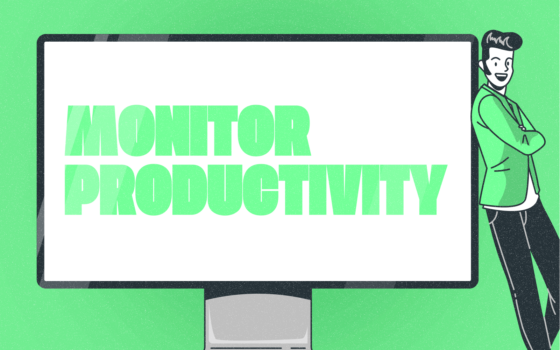The Top 7 Benefits of Taking Maternity and Paternity Leave for Remote Talent
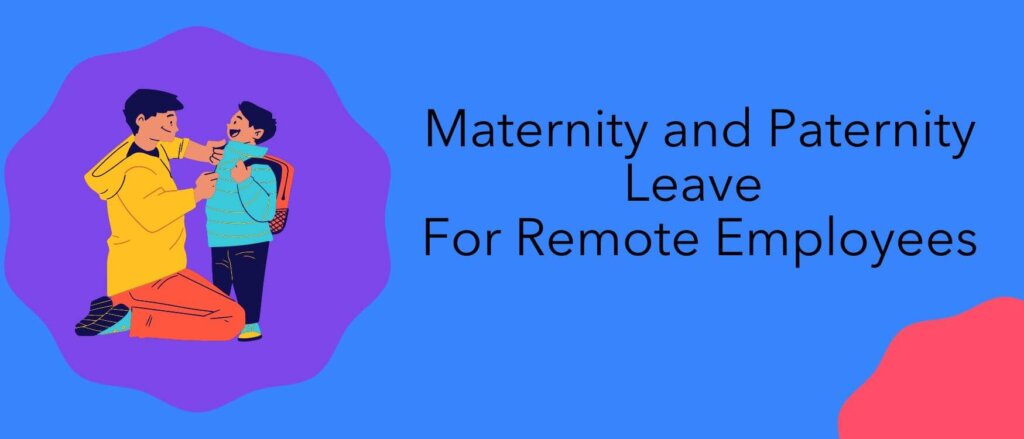
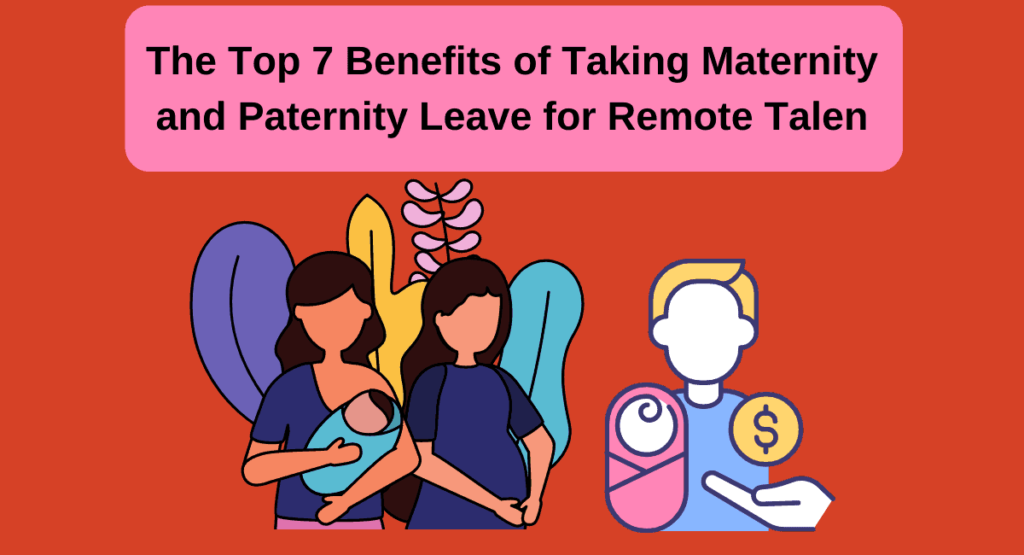
Did you know that new fathers are legally entitled to take paternity leave in some countries?
In Sweden, for example, fathers are given a minimum of three months of paid paternity leave. And in Canada, maternity and paternity leave is available to both mothers and fathers.
While the United States is behind other countries regarding parental leave policies, there are still many benefits to taking maternity and paternity leave.
We will discuss the benefits of maternity and paternity leave in this article. So, read on!
What is Maternity Leave?
“Safe maternity and health care for mother and infant survival are at the core of life itself. It is also central to decent work, productivity for women, and gender equality at work.” ILO.
Maternity leave is when a mother is allowed to take off work to get rest and nutrition. This break helps her adjust back to work comfortably and also enables her to bond with her new child.
There are two types of maternity leave which lasts for six weeks, and parental leave, which entitles an employee to take eight weeks off work due to childbirth or adoption.
Usually, the first phase of parental leave lasts for three weeks, while the second phase runs for another three-week cycle.
What is Paternity Leave?
Paternity leave is when a father is allowed to take off work to bond with his new child. Paternity leaves are available in countries where maternity leave is also available to fathers.
The benefits of paternity leave include:
- Spending time with the new child.
- Bonding with the mother.
- Getting to know the baby’s siblings.
Additionally, paternity leave can help fathers become more involved in their children’s lives from an early age.
The Benefits of Taking Maternity and Paternity Leave

Some benefits of taking maternity and paternity leave such as:
1. It Can Help Reduce Stress Levels:
A study published in BMC Pregnancy and Childbirth found that taking maternity leave can help reduce a mother’s stress levels. The study also found that mothers who didn’t take maternity leave were more likely to experience postpartum depression.
2. It Can Improve Bonding Between Parents and Child:
Numerous studies have found that maternity leave can improve the bond between parents and children. Fathers who took paternity leave will be more involved in their child’s care, such as feeding, diapering, and bathing.
3. It Can Help with a Baby’s Development:
The journal Developmental Psychology found that infants of mothers who took maternity leave were more likely to meet baby developmental milestones, such as sitting up and crawling.
4. It Can Improve a Mother’s Mental Health:
A study published in the Health Economic’s Journal found that taking maternity leave can improve a mother’s mental health. The study found that mothers who took maternity leave were less likely to experience anxiety and depression.
5. It Can Improve a Father’s Mental Health:
A study published in Social Science & Medicine found that taking paternity leave can improve a father’s mental health. The study found that fathers who took paternity leave were less likely to experience depression.
6. It Can Help with Postpartum Recovery:
A journal study found that taking maternity leave can help with postpartum recovery. The study found that mothers who took maternity leave were less likely to experience complications, such as infection and hemorrhage.
7. It Can Improve a Family’s Overall Well-Being:
A Social Science Research study found that maternity leave can improve a family’s overall well-being. The study found that families who took maternity leave were more likely to have better mental and physical health.
If you’re a parent, I hope this has convinced you to take advantage of these leave policies. And if you’re an employer, I hope this has convinced you to offer more generous maternity and paternity leave policies. It’s good for everyone!
Get more out of your business
Get the best employee engagement content every week via mailing list
How Maternity and Paternity Leave Can Improve Family Well-Being
Maternity and paternity leave can play an essential role in the overall well-being of families. Families can enjoy it when parents take time off to care for a new baby:
1. Parents Can Build Strong Bonds with Their New Children.
The early weeks and months after a baby is born are crucial for developing a close bond. When parents can spend that time with their children, they are more likely to have a strong relationship to last a lifetime.
2. Parents Can Get Much-Needed Rest.
Babies require much care, and sleep deprivation is common for new parents. Taking some time off during the early weeks and months can help parents get the rest they couldn’t get.
3. Parents Can Learn About Caring for a Newborn.
There is much information about caring for a newborn, and it can be challenging to figure it all out on your own. Parental leave can allow parents to learn about everything from feeding to bathing their child.
4. Parents Can Get Back into Shape After Giving Birth.
Having a baby changes a woman’s body, making it difficult to return to shape afterward. Maternity leave allows new mothers to focus on their health and fitness without worrying about caring for a child and working simultaneously.
Paternity leave can also benefit fathers, allowing them to be more involved in their child’s life from the beginning. Fathers who take paternity leave are more active in childcare tasks and later decisions.
Overall, maternity and paternity leave can positively impact both parents and children. Families who take advantage of these leaves are more likely to be happy and healthy in the long run.
What Are a Mother’s Rights and Obligations on Maternity Leave?
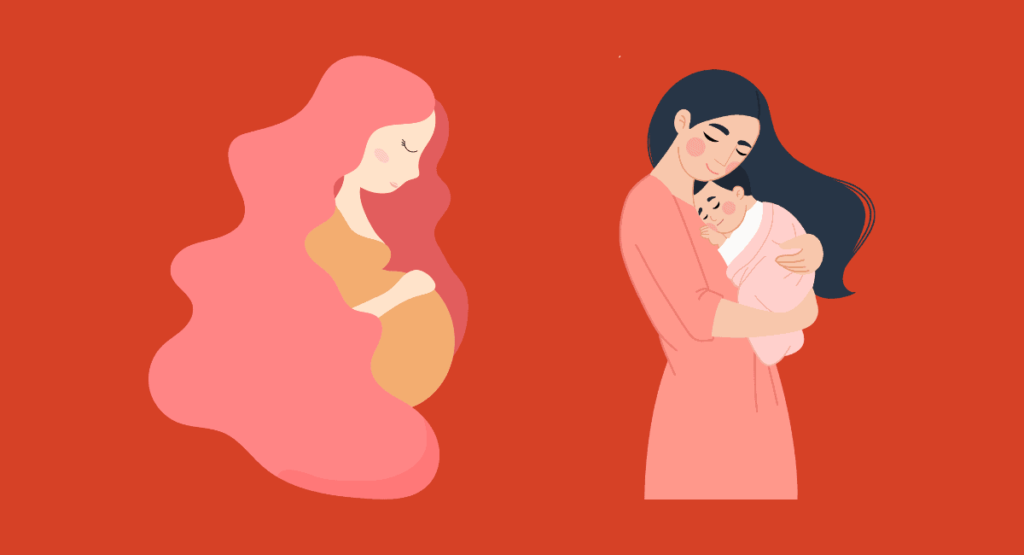
The rights and obligations of a mother on maternity leave will vary depending on the country in which she lives. However, some general rights and obligations are common to mothers on maternity leave.
Rights may include the right to return to work after the leave, the right to keep her job during the leave, and the right to receive paid leave. Obligations may include giving the employer notice of the leave and returning to work for a certain period after the leave.
It is crucial for mothers on maternity leave to be aware of their rights and obligations to protect themselves and their jobs.
What Are Some Companies That Offer Generous Maternity and Paternity Leaves?
Many companies offer generous maternity and paternity leave to attract and retain employees. Some companies that offer generous maternity and paternity leaves include Google, Netflix, Microsoft, and Amazon.
These companies offer paid leave for several weeks or months and other benefits such as on-site childcare facilities. Offering generous maternity and paternity leaves is a way for these companies to show their commitment to supporting families.
What Are Some Countries That Have Generous Maternity and Paternity Leave Policies?
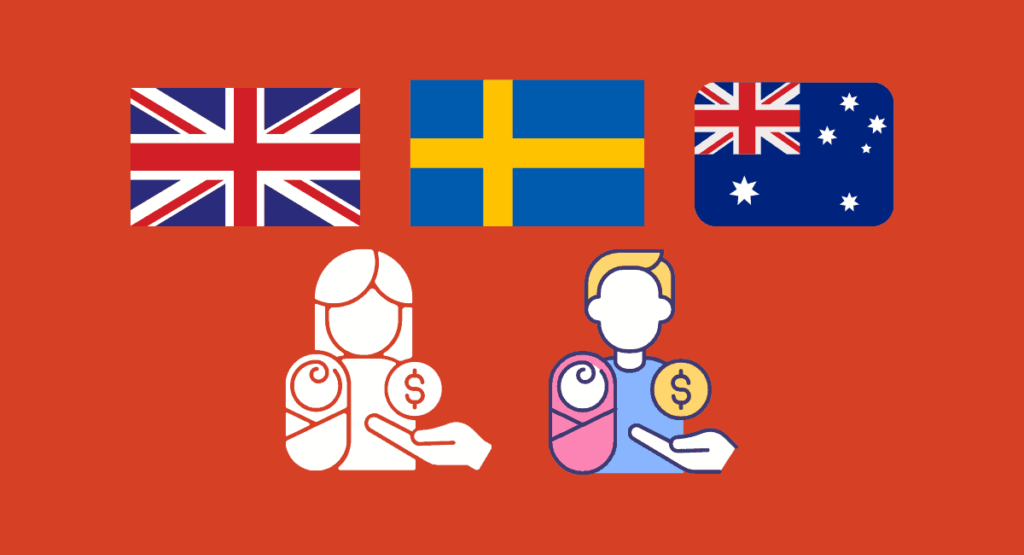
Some countries offering generous maternity and paternity leave policies include Canada, the United Kingdom, Australia, and Sweden. These countries often offer paid leave for several weeks or even months.
Additionally, these countries have laws protecting mothers and fathers from being fired for taking leave. Paid parental leave ensures parents can take the time necessary to care for their new children without fearing losing their jobs.
Maternity and paternity leave is essential for parents and children alike. These leaves give parents time to bond with their new children and recover from childbirth.
Additionally, paternity leave has increased fathers’ involvement in childcare. Generous maternity and paternity leave policies are beneficial for both employees and employers.
What is the Right Time to Take Maternity or Paternity Leave for Remote Talent?
There is no “right” time to take maternity or paternity leave for remote talent. However, it is essential to consider the timing of the leave about the work that needs to be completed.
For example, if a project is nearing its deadline, it may not be the best time to take a leave of absence. Alternatively, if a company is experiencing a slow period, taking a leave may not have as big of an impact.
How Do You Qualify for Maternity or Paternity Leave As a Remote Employees
The qualifications for maternity or paternity leave for remote employees will vary depending on the country in which they live. However, some general qualifications are typically required.
For example, most countries require employees to work for their employer for a certain period before qualifying for leave. Additionally, employees may be required to provide proof of pregnancy or childbirth.
Employees should check with their employers to see what qualifications are for maternity or paternity leave. You may also want to research the laws in your country to ensure that you are getting the most generous benefits possible.
Singapore’s Regulation on Maternity or Paternity Leaves: Case of Study
Maternity leave in Singapore is a government-mandated benefit that gives female employees up to 16 weeks of paid leave. Employees that have worked for the company for at least three months can qualify for maternity leave.
In addition to paid leave, employees are entitled to unpaid leave for up to 12 months. During parental leave, employees can work reduced hours or take a break from work altogether.
Maternity leave can be used for childbirth, adoption, or fostering a child. However, the mother must take at least two weeks of maternity leave after giving birth. Fathers are not entitled to paternity leave in Singapore.
Employees on maternity leave can return to their job either full-time or part-time. They can also take a break for up to 2 years if they do not wish to return full-time.
The government of Singapore offers several programs to help working mothers care for their children. These programs include subsidized childcare, maternity grants, and infant care.
Fathers who are employed and meet the eligibility requirements set by the government will be able to take advantage of 2 weeks of paid paternity leave.
United States’s Regulation on Maternity or Paternity Leaves
In the US, no federal law mandates paid maternity or paternity leave. However, some states have implemented their laws. Currently, 11 states—California, Colorado, Connecticut, Delaware, Massachusetts, Maryland, New Jersey, New York, Oregon, Rhode Island, and Washington—and the District of Columbia offer paid family leave.
Additionally, many employers offer employees paid or unpaid leave as a benefit. The amount of time provided varies by employer but typically ranges from two to twelve weeks.
FMLA leave protects employees who take maternity or paternity leave. This act guarantees that employees can take up to 12 weeks of unpaid leave for medical reasons, including childbirth and adoption.
Employees who have been with their company for at least one year qualify for FMLA leave.
Employees who take maternity or paternity leave are guaranteed to have their job waiting for them when they return. Employers cannot fire, demote, or otherwise punish employees for taking leave.
If you consider taking maternity or paternity leave, check with your employer.
India’s Regulation on Maternity or Paternity Leaves
India has some regulations in place about maternity and paternity leaves. In India, women are entitled to 12 weeks of maternity leave, while fathers are entitled to just three days of paternity leave.
Despite these regulations, many Indian companies do not offer paid maternity or paternity leave. Companies have no mandatory requirement to do so. However, there is a growing movement among Indian citizens to change this.
Recently, people have pushed for the government to amend the law and make it mandatory for companies to pay maternity and paternity leave. This amendment would align India with other countries, such as the United States and Canada, which already have such a mandate.
This amendment would be a big win for parents and their children if approved. Conclusion
So whether you’re living in a country with generous parental leave policies or where the laws are just starting to change, there are plenty of reasons why both mothers and fathers should take advantage of this time off work.
Not only does it allow parents more time to bond with their new child, but it can also lead to increased family productivity and well-being in the future.
Have you taken maternity or paternity leave? We hope it was a great experience! Stay tuned to our blog for more engaging content like this one.
